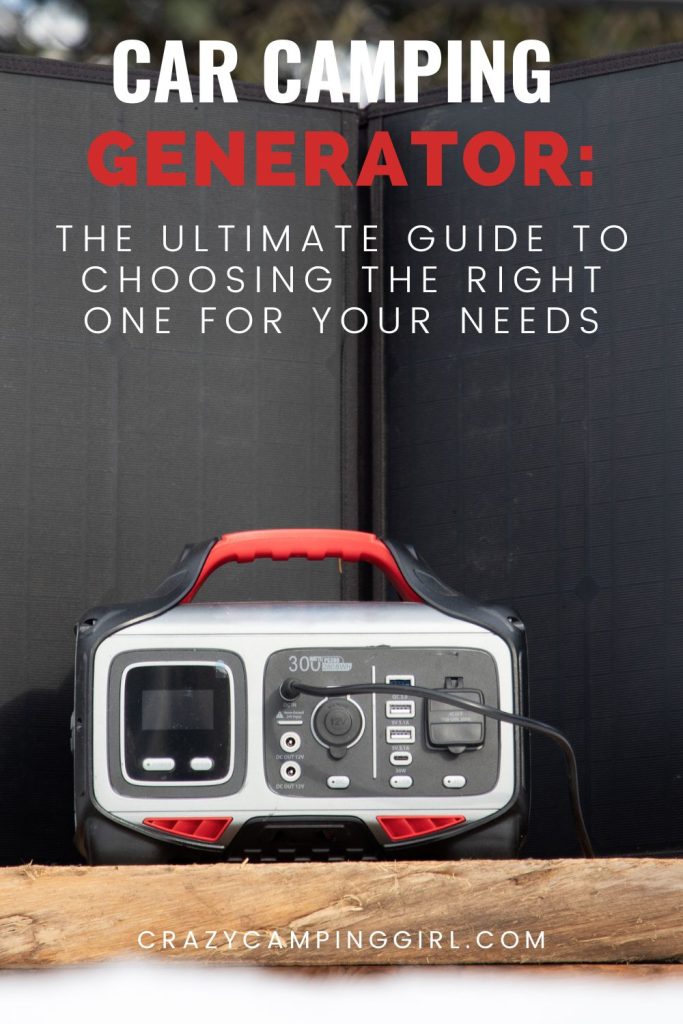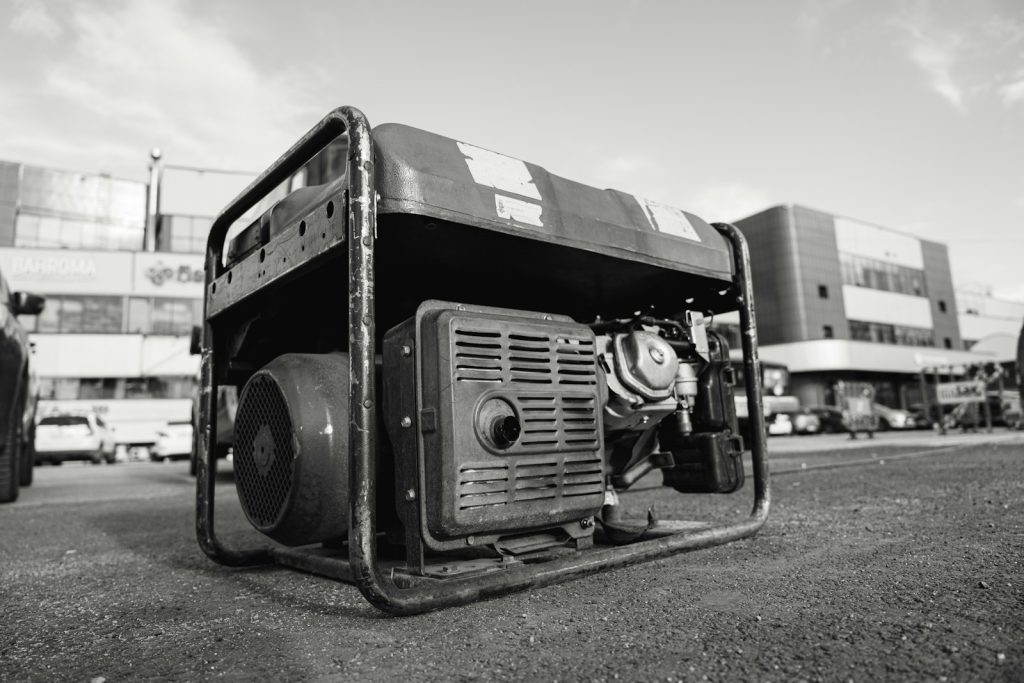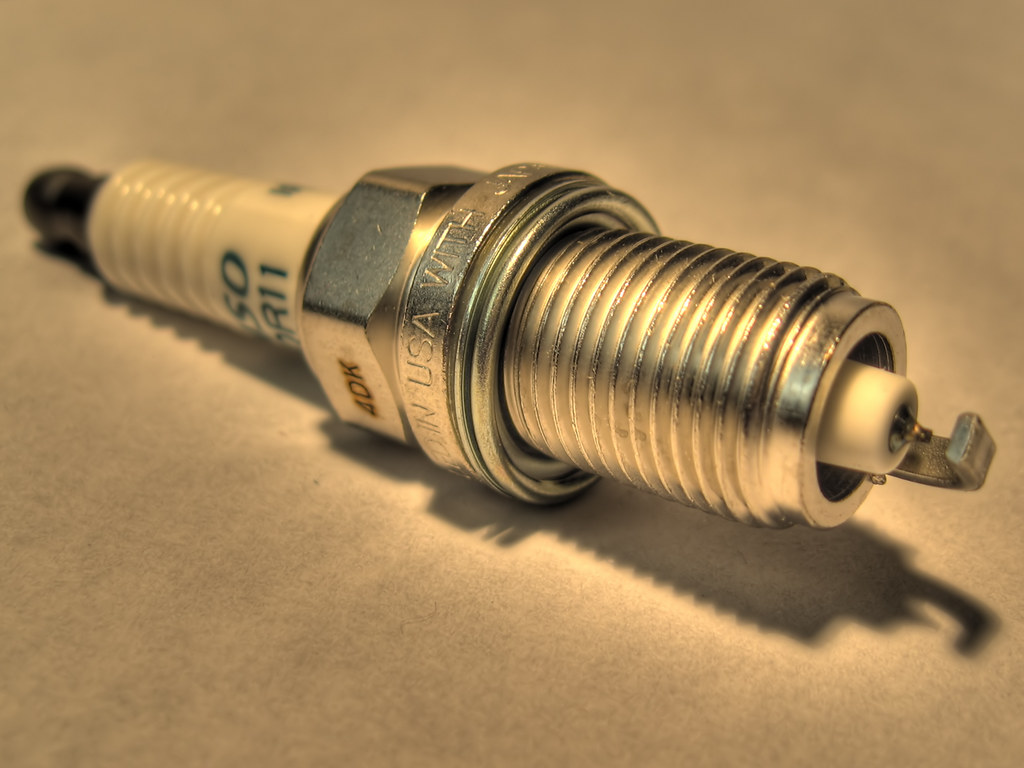
Car Camping Generator: The Ultimate Guide to Choosing the Right One for Your Needs
We may earn money or products from the companies mentioned in this post.
Car camping is a popular way to enjoy the great outdoors without sacrificing the comforts of home. However, one of the biggest challenges of car camping is finding a reliable power source to keep your devices charged and your electronics running. This is where a car camping generator comes in.

A car camping generator is essentially a portable power source that can be used to power various devices while you’re camping. They come in a range of sizes and power outputs, so it’s important to choose one that meets your specific needs.
Some generators are designed to power small devices like smartphones and cameras, while others are powerful enough to run larger appliances like refrigerators and air conditioners. When choosing the best one for your purposes, it’s important to consider factors like noise level, fuel efficiency, and run time.
Understanding Car Camping Generators
Car camping generators are portable power sources that run on fuel, designed for camping enthusiasts who need electricity while on the go. In this section, we will explore the importance of a generator and the types available in the market.
Importance of a Generator
A car camping generator is essential for campers who need a reliable source of power for their electronic devices and appliances. Whether you want to charge your phone, run a heater, or power a coffee maker, a generator can provide you with the necessary electricity to make your camping experience comfortable and enjoyable.
Moreover, a generator can also be a lifesaver in emergency situations. If you get stranded in the wilderness or experience a power outage, a generator can provide you with the necessary power to keep your devices charged and stay connected to the world.
Types of Generators
There are two types of car camping generators: inverter and conventional.
Inverter Generators
Inverter generators are quieter and more fuel-efficient than conventional. They produce clean and stable power that can safely power sensitive electronics like laptops and smartphones. Inverter generators are also lightweight and compact, making them an excellent choice for campers who need a portable power source.
Conventional Generators
Conventional generators are more powerful than inverter and can power larger appliances like air conditioners and refrigerators. However, they are also louder and less fuel-efficient than inverter generators. Conventional generators are a good choice for campers who need a lot of power but don’t mind the noise and bulkiness.
Overall, the type of generator you choose depends on your power needs and personal preferences. Inverter generators are suitable for most camping situations, while conventional generators are better suited for larger RVs and campers.
Key Features to Consider
When choosing a car camping generator, there are several key features to consider. These features include power output, fuel type, noise level, and portability.
Power Output
One of the most important features to consider when choosing a car camping generator is power output. The power output is measured in watts and determines how much electrical power the generator can produce. To determine the power output that you need, consider the electrical appliances that you plan to use while camping.
For example, a small generator with a power output of 1000 watts can power a mini-fridge, a few lights, and a phone charger. However, if you plan to use larger appliances such as a portable air conditioner or an electric grill, you will need a generator with a higher power output.
Fuel Type
Another important feature to consider when choosing a car camping generator is fuel type. There are three main types of fuel use: gasoline, propane, and diesel. Gasoline generators are the most common type and are widely available.

Propane generators are quieter, produce less emissions, and are more fuel-efficient than gasoline generators. Diesel are the most fuel-efficient, but they are also the loudest and emit the most emissions.
Noise Level
Noise level is another important feature to consider when choosing a car camping generator. Generators can be loud, which can be disruptive to other campers. Look for generators that are designed to be quiet, such as those with noise-reducing mufflers or those that are enclosed in a soundproof casing.
Portability
Finally, consider the portability. Car camping generators should be easy to transport and set up. Look for generators that are lightweight and compact, with built-in handles or wheels for easy transportation. Additionally, ones with multiple outlets can be more convenient, allowing you to power multiple appliances at once.
When choosing a car camping generator, consider the power output, fuel type, noise level, and portability. By carefully considering these features, you can choose the right generator for your camping needs.
Top Car Camping Generators
When it comes to car camping, having a reliable source of power is essential. Whether you need to charge your phone, power a portable stove, or run a small fridge, a good car camping generator can make your trip more enjoyable. Here are some of the top car camping generators on the market.
Best Overall
The FlashFish 60000mAh Portable Power Station Camping Portable Generator is a top-notch option for car camping. With a capacity of 60000mAh, it can charge your phone up to 15 times and power a small fridge for up to 10 hours. It has multiple charging ports, including USB, AC, and DC, and can be recharged via solar panel, car charger, or wall outlet. It’s also lightweight and compact, making it easy to transport.
Another great option is the Yamaha EF2000iSv2. It’s a gas-operated generator that has a 2000 watt maximum AC output, 120V, and is less than 45 pounds. It’s remarkably quiet, with only 51.5 dBA at ¼ load, making it a great choice for those who want to minimize noise pollution in the great outdoors.
Best Budget
For those on a budget, the Jackery Explorer 240 is a great option. It’s a budget-friendly option for campers that want a simple generator for small electronics. It features a 240Wh (16.8Ah) lithium rechargeable battery that can be powered by an AC wall outlet, 12V car outlet, or a 60W solar panel (sold separately). At just 6.6lbs (3kg) it is one of the lightest options on the market today.
Another affordable option is the SinKeu 146Wh Portable Power Station. It has a capacity of 146Wh and can power small appliances, phones, and laptops. It’s also lightweight and compact, making it easy to transport.
Best for Large Groups
If you’re camping with a large group, you’ll need a generator with a higher capacity. The BALDR Portable Power Station 330W is a good option for large groups. It has a capacity of 330W and can power multiple devices at once, including small fridges, laptops, and phones.

It has multiple charging ports, including USB, AC, and DC, and can be recharged via solar panel, car charger, or wall outlet. It’s also lightweight and compact, making it easy to transport.
Maintenance Tips
To keep your car camping generator running smoothly, regular maintenance is key. Here are some tips to help with maintenance and ensure it’s always ready to go when you need it.
Routine Check
Performing regular checks on your generator can help prevent problems before they occur.
- Oil levels: Check the oil level before each use. Running a generator with low oil can damage the engine. Follow the manufacturer’s recommendations for oil type and change intervals.
- Air filter: A dirty air filter can hinder performance. Clean or replace the filter as needed.

- Spark plug: A bad spark plug can prevent the generator from starting. Check the spark plug and replace it if necessary.
- Battery: Keep the battery charged to ensure the generator starts easily. If the generator is not used frequently, consider using a battery maintainer to keep the battery charged.
Fuel Management
Proper fuel management is important for the longevity of your generator. Here are some tips to help you manage your fuel.
- Fuel stabilizer: If you plan to store your generator for an extended period, add fuel stabilizer to the tank. This will help prevent the fuel from breaking down and causing problems.
- Fuel type: Use the recommended fuel type for your generator. Using the wrong type of fuel can damage the engine.
- Fuel level: Always keep the fuel level above the minimum mark. Running a generator with low fuel can damage the engine.
Storage
Proper storage can help prolong the life of your generator. Here are some tips for storing your generator:
- Clean before storing. This will help prevent dirt and debris from accumulating and causing problems.
- Store the generator in a dry, well-ventilated area. Moisture can cause rust and other problems.
- Run the generator every few months to keep the engine lubricated and prevent problems from occurring during storage.
By following these maintenance tips, you can ensure your car camping generator is always ready to go when you need it.
Safety Guidelines
When using a car camping generator, it is important to follow certain safety guidelines to prevent accidents and ensure the safety of everyone around.
Proper Ventilation
One of the most important things to keep in mind when using a car camping generator is to ensure proper ventilation. They produce carbon monoxide, which is an odorless, colorless gas that can be deadly if inhaled in large amounts.
To prevent carbon monoxide poisoning, always position your generator outside and far away from doors and openings to campers and tents. Make sure the machine is pointed away from your RV, truck/car, trailer, tent, and people. Also, avoid using in enclosed spaces like garages or tents.
Fire Safety
Another important safety consideration when using a car camping generator is the risk of fire. Generators produce heat, and if they are not placed on a stable, level surface, they can tip over and cause a fire. To prevent this, always place your generator on a flat, stable surface and make sure it is secured in place. Also, keep flammable materials away from the generator, and never refuel it while it is running or hot.
Electrical Safety
Finally, it is important to follow proper electrical safety guidelines when using a car camping generator. Make sure to read the operator’s manual first and choose portable generators with automatic CO shutoff systems that meet the ANSI/PGMA G300-2018 standard.
Also, make sure to use heavy-duty extension cords that are rated for outdoor use and can handle the wattage of your generator. Never overload your generator, and be sure to turn it off and unplug it before making any repairs or adjustments.
By following these safety guidelines, you can help ensure a safe and enjoyable car camping experience for yourself and everyone around you.
Frequently Asked Questions
What is the quietest generator for camping?
The quietest for camping is an inverter generator. Inverter generators are designed to be quieter than traditional generators. They use advanced technology to produce clean and stable power, making them ideal for powering sensitive electronics. Some of the quietest for camping include the Honda EU2200iTAG and the WEN 56380i.
What size generator is best for camping?
The size of the generator you need for camping depends on your power needs. A generator with a power output of 2000-3000 watts is usually sufficient for most camping needs. However, if you plan to power multiple devices or appliances, you may need a larger generator. It is important to consider the wattage required by each device or appliance to ensure you choose the right size generator.
How long do car generators last?
The lifespan of a car generator depends on various factors such as usage, maintenance, and quality. On average, a car generator can last up to 10 years with proper maintenance. However, if the generator is used frequently or not maintained properly, its lifespan may be shorter.
Is it safe to put a generator in a car?
It is not safe to put a generator inside a car. Generators produce carbon monoxide, which is a poisonous gas that can be deadly in enclosed spaces. If you need to transport a generator in your car, it should be placed in a well-ventilated area such as the trunk or on a roof rack.
What is the best portable generator for camping?
The best portable generator for camping is one that is lightweight, compact, and easy to transport. Some of the best portable generators for camping include the FlashFish 60000mAh Portable Power Station and the Jackery Portable Power Station Explorer 1000.
What is the best quiet generator for camping?
The best quiet generator for camping is an inverter generator. Inverter generators are designed to be quieter than traditional generators. Some of the best quiet generators for camping include the Honda EU2200iTAG and the WEN 56380i.
